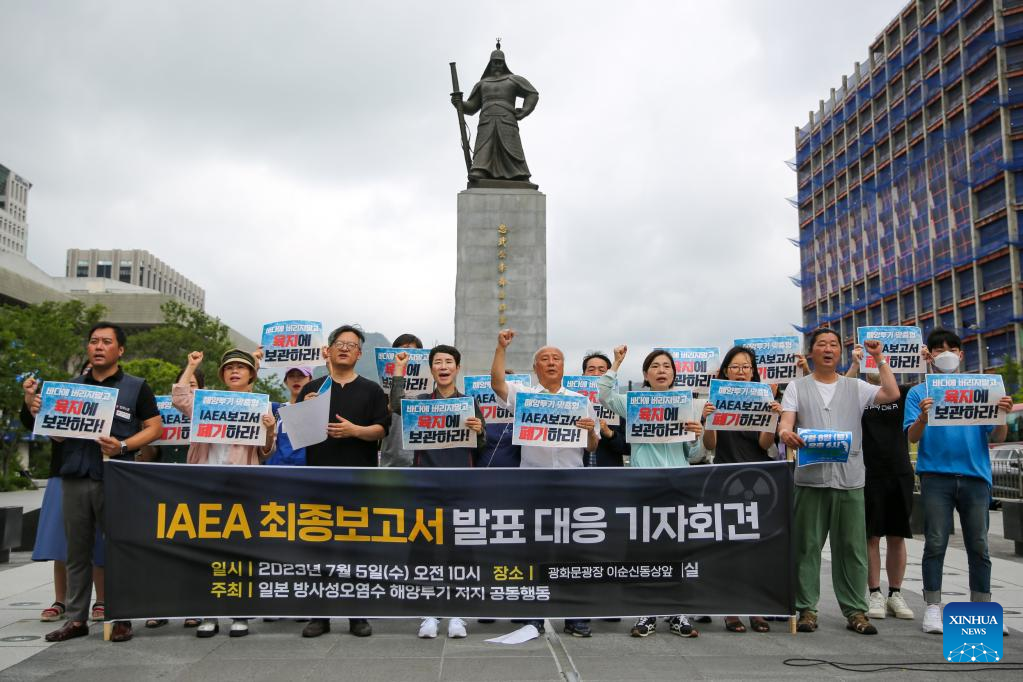
Activists holding signs participate in a gathering in Seoul, South Korea, July 5, 2023. South Korean civic activists on Wednesday raised questions over the credibility of a final report by the International Atomic Energy Agency (IAEA) on Japan's planned discharge of nuclear wastewater from the crippled Fukushima Daiichi nuclear power plant into the ocean. (Xinhua/Wang Yiliang)
SEOUL, July 5 (Xinhua) -- South Korean civic activists on Wednesday raised questions over the credibility of a final report by the International Atomic Energy Agency (IAEA) on Japan's planned discharge of nuclear wastewater from the crippled Fukushima Daiichi nuclear power plant into the ocean.
A group of activists, who gathered in central Seoul, said in a statement that the report, which said the marine dumping of nuclear-contaminated water "meets international standards," turned out to be a verification only based on data presented by the Japanese government and the Tokyo Electric Power Company (TEPCO), operator of the Fukushima nuclear power plant.
The statement said they can not trust the IAEA report at all, noting that it failed to properly verify the performance of the advanced liquid processing system (ALPS) which will have to be used for decades to screen the contaminated water.
"If (the report) were to be a scientific verification, (the IAEA) should have cross-examined various hypotheses, but it never did it at all," said Park Seok-woon, one of the activists who participated in the gathering.
Park noted that the IAEA failed to verify the ALPS performance and conduct a comprehensive environmental impact assessment, urging the South Korean government to file a complaint with the International Tribunal for the Law of the Sea against Japan.
Lee Jin-hyung, an environmental activist, said the IAEA report can not be an indulgence for Japan's crimes, which would cause harm to the safety of others by dumping toxic water into the maritime ecosystem.
Oh Song-yi, a mother of two children, said the IAEA did not understand how fearful it is to live in a society destroyed by pollutants.
The Japanese government has been pushing for dumping the contaminated water this summer, which has aroused strong opposition and doubts from domestic fishing groups, neighboring countries, and South Pacific island countries, as well as the international community. ■
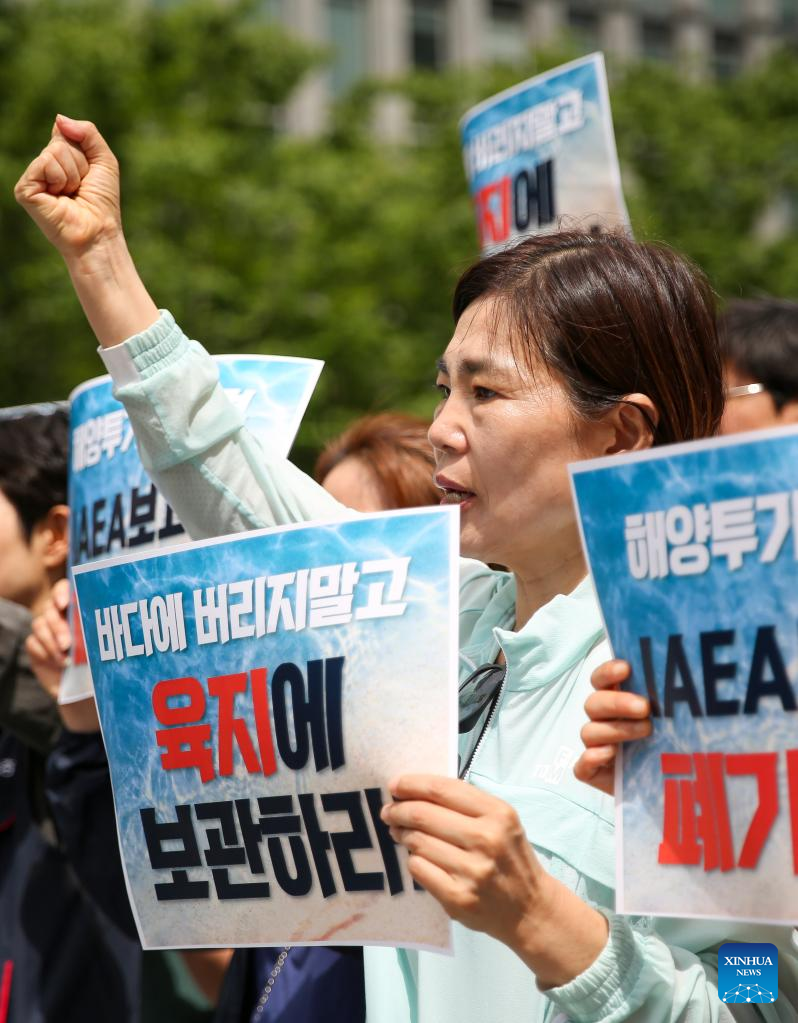
An activist holding signs participates in a gathering in Seoul, South Korea, July 5, 2023. South Korean civic activists on Wednesday raised questions over the credibility of a final report by the International Atomic Energy Agency (IAEA) on Japan's planned discharge of nuclear wastewater from the crippled Fukushima Daiichi nuclear power plant into the ocean. (Xinhua/Wang Yiliang)
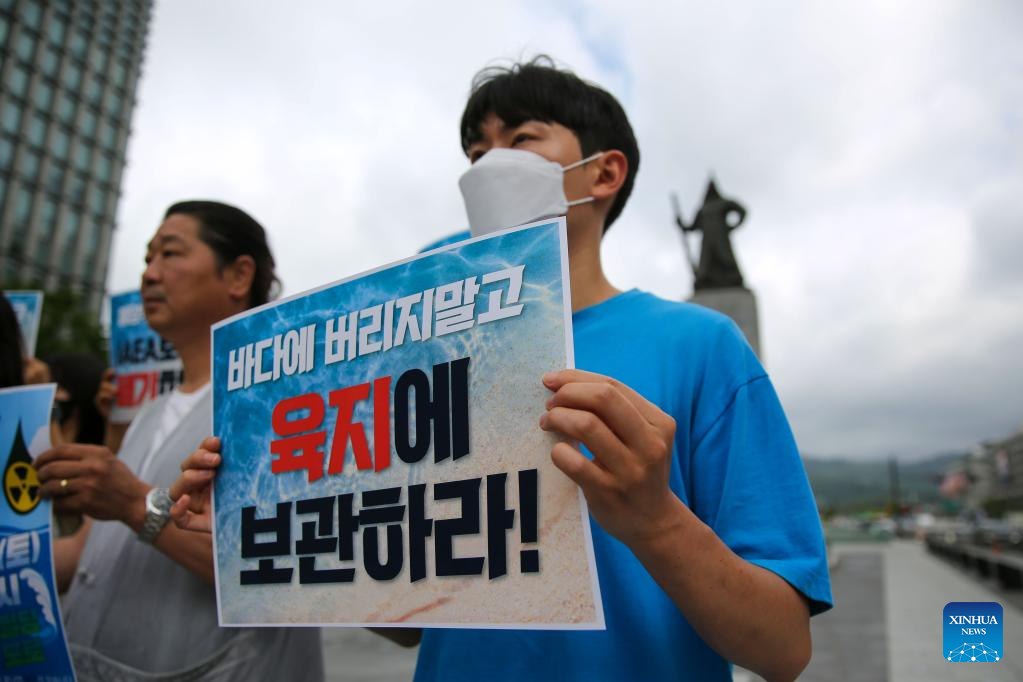
Activists holding signs participate in a gathering in Seoul, South Korea, July 5, 2023. South Korean civic activists on Wednesday raised questions over the credibility of a final report by the International Atomic Energy Agency (IAEA) on Japan's planned discharge of nuclear wastewater from the crippled Fukushima Daiichi nuclear power plant into the ocean. (Xinhua/Wang Yiliang)

Activists holding signs participate in a gathering in Seoul, South Korea, July 5, 2023. South Korean civic activists on Wednesday raised questions over the credibility of a final report by the International Atomic Energy Agency (IAEA) on Japan's planned discharge of nuclear wastewater from the crippled Fukushima Daiichi nuclear power plant into the ocean. (Xinhua/Wang Yiliang)
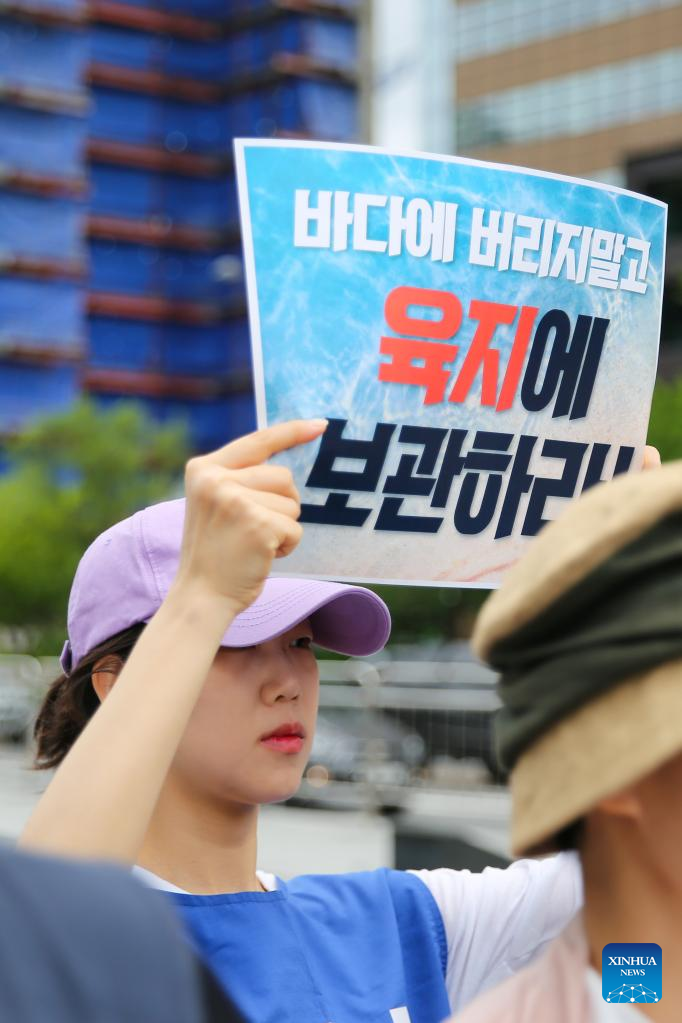
An activist holding signs participates in a gathering in Seoul, South Korea, July 5, 2023. South Korean civic activists on Wednesday raised questions over the credibility of a final report by the International Atomic Energy Agency (IAEA) on Japan's planned discharge of nuclear wastewater from the crippled Fukushima Daiichi nuclear power plant into the ocean. (Xinhua/Wang Yiliang)
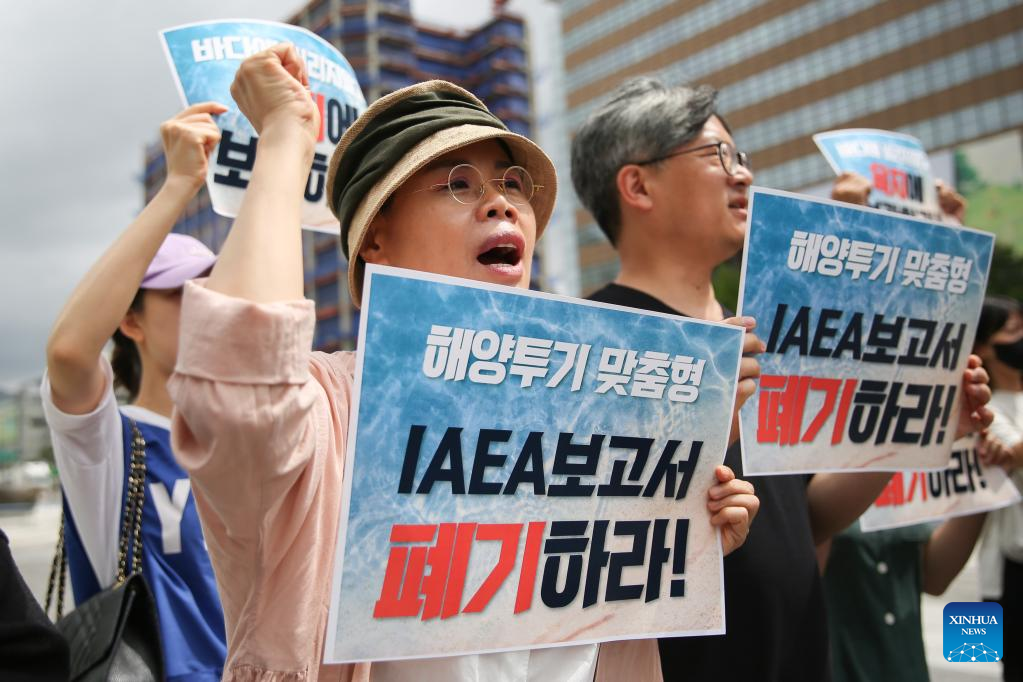
Activists holding signs participate in a gathering in Seoul, South Korea, July 5, 2023. South Korean civic activists on Wednesday raised questions over the credibility of a final report by the International Atomic Energy Agency (IAEA) on Japan's planned discharge of nuclear wastewater from the crippled Fukushima Daiichi nuclear power plant into the ocean. (Xinhua/Wang Yiliang)



